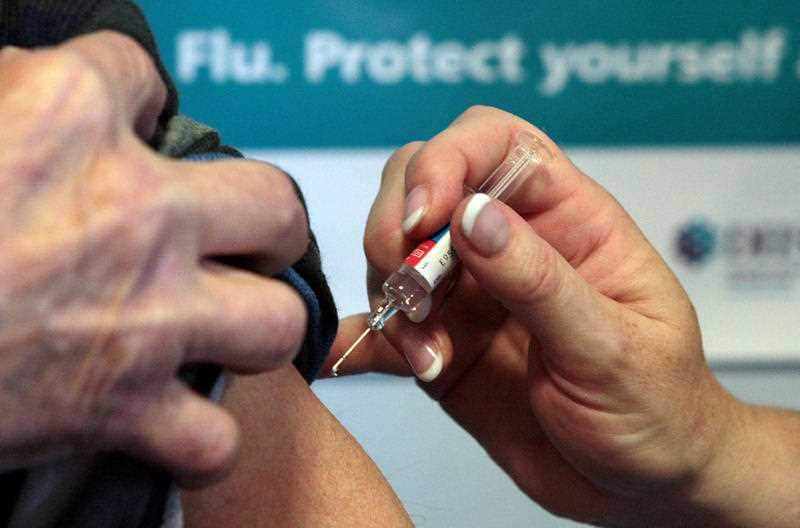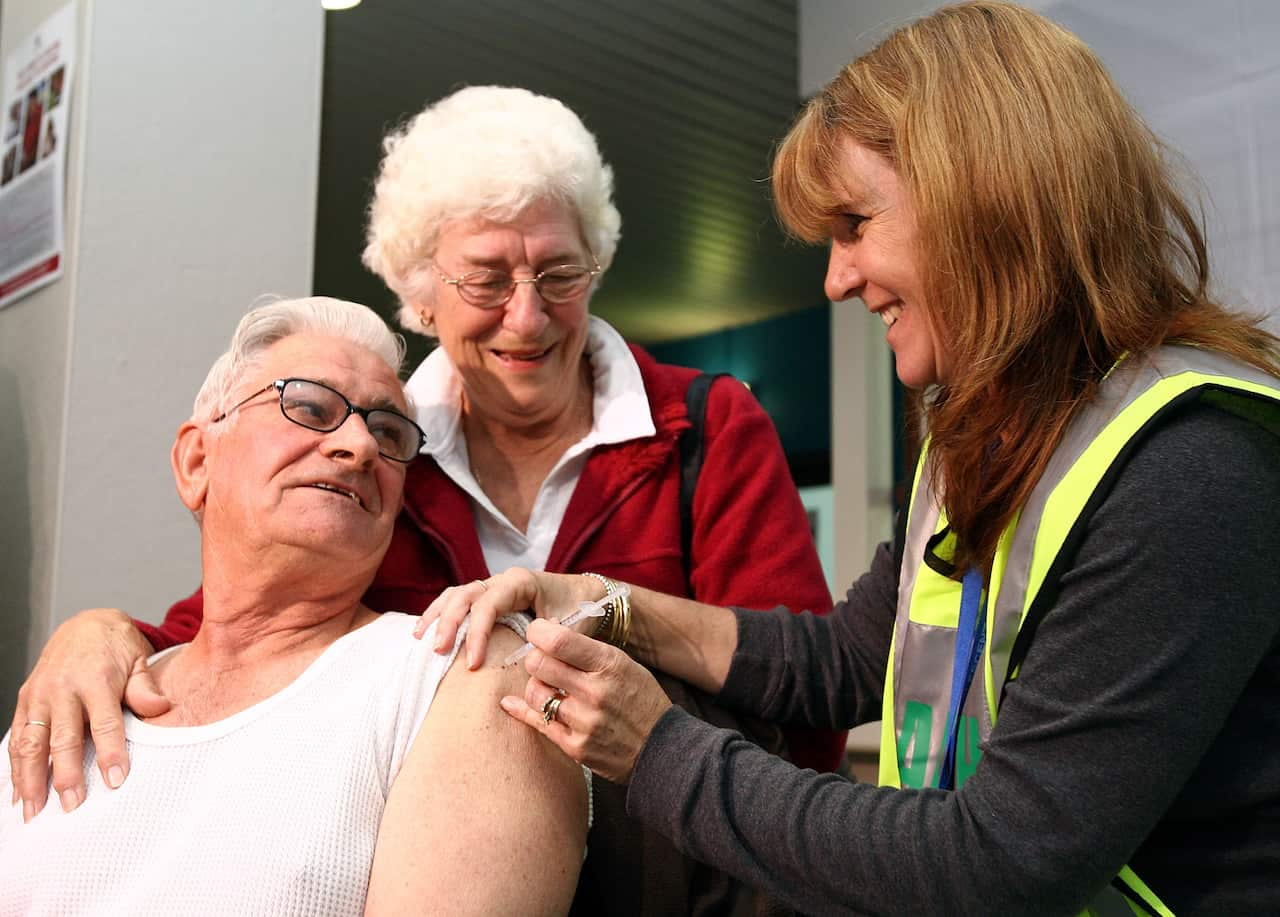As the flu season approaches for another year, for the first time all Indigenous Australians will be eligible for a free flu shot under the government's national immunisation program.
Previously the program was only available to Indigenous people between 6 months and five-years-old and over 15-years-old. The Government's Chief Medical Officer Professor Brendan Murphy told SBS News there was "a lot of push" to introduce the program for Indigenous people of all ages.
"In general Aboriginal and Torres Strait Islanders have a much higher burden of disease with flu and they have high rates of population and they're certainly much more affected," he said.

"There was a lot of push from the sector, to say well if we're covering the majority of the sector and there is still a burden of disease in the teenagers we'd much better to cover the entire range of Aboriginal and Torres Strait Islanders so that we don't have stop and start programs."
The National Immunisation Program, which is open to pregnant women, people aged 65 and over, Australian's with medical conditions that increase the risk of influenza and, now, all Aboriginal and Torres Strait Islander people, is expected to launch in mid-April.
Dr Murphy said more than 6 million doses of the vaccine had been secured, so those most at risk from influenza could access the shot free of charge.
In 2018, he said there was "unprecedented demand" for the vaccine with 6 million doses provided under the scheme - a third more than in 2017.

"Last year we had a really unprecedented demand for flu vaccine because we had such a bad flu season in the year before," he said.
"What we don't quite know this year is whether that huge increase will be sustained or whether people might be a bit complacent because last year's flu season was pretty mild."
Chief executive officer of the Immunisation Coalition Kim Sampson told SBS News it was impossible to predict how severe this year's flu season would be.
"Influenza does occur throughout the full 12 months of the year but it's usually very very quiet through December, January and February," he said. "This year however we've seen an increase perhaps three times the usual level of influenza for this time of year ... but that doesn't necessarily mean it's going to be a really bad year."
The Department of Health has reiterated that it is important for people to get vaccinated every year as the virus changes. This year, the seasonal vaccine will be aiming to target two new strains - an H3N2 strain and a variant of the B Victoria lineage.
For people over 65, an enhanced trivalent vaccine will be made available.
Does a sneezy summer mean a severe flu season?
The opening up of the immunisation program to all Indigenous people comes as Australia recovers from an above average number of summer flu cases.
"Unusually high levels of influenza activity are being seen in most states and territories, with the national reporting rate more than three times the average for this time of year," NSW Health’s Communicable Diseases Branch Director, Dr Vicky Sheppeard, said in a statement earlier this month.
In the final month of the 2019 summer, there were approximately 2244 confirmed influenza cases confirmed in NSW - almost double the 1144 cases recorded in February last year, according to NSW Health's Influenza Surveillance Report.
Victoria also saw one of the biggest summer outbreaks of the flu the state had seen, according to Chief Health Officer Brett Sutton. As of March, the state had seen 2,800 confirmed cases of influenza - including a young child who died of the virus.
Mr Sampson said there were a number of possible causes for the spike in summer flu cases, such as increased tourist activity from the tropics and cruise ships, but said: "there was no such thing as a traditional flu season".
"This will be a different flu season to any others that we've had because of the way it started. But how it shapes up from here on in we don't know," he said.
Dr Murphy said despite the increased number of flu cases during the summer, the government still recommends getting vaccinated around April, May and June.

"All the data for the last sort of 20 years shows that the peak season is always around that July, August and September. You know that's when the really large numbers come," she said.
"Australia has always shown that pattern even though there are these little blips. So at the moment, there wouldn't be enough evidence to change our strategy."
Is a pandemic coming?
World Health Organisation (WHO) Director-General Tedros Adhanom Ghebreyesus said last month that the risk of an influenza pandemic is "ever-present" and urged countries to be ready for the threat.
"The question is not if we will have another pandemic, but when," he said.
"We must be vigilant and prepared – the cost of a major influenza outbreak will far outweigh the price of prevention.”
WHO's Global Influenza Strategy 2019-2030, released earlier in March, sets out two clear goals: for every country to have a tailored influenza program and to develop better tools for the prevention, detection, control and treatment of the virus.
Still fresh in the mind of many medical officials is the horrific 2017 flu season, which left 1,255 Australians dead, according to the Australian Bureau of Statistics.
More than 90 per cent of the deaths were people over 65.
But while it was less than three years ago, some medical experts worry the less severe 2018 season, which saw less than 100 Australians lose their lives, will mean people forgo getting a jab.
"Last year we had a very mild season and we are concerned that there will be complacency because of that," Mr Sampson said.
"One of the things that we try to do is continually remind people that influenza is a potentially very serious disease and that people should remember to get vaccinated not only to protect themselves but to protect the vulnerable people around them."
